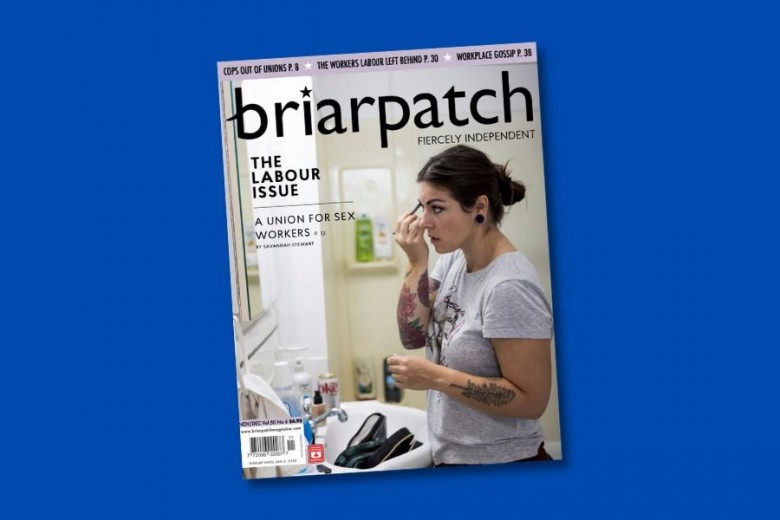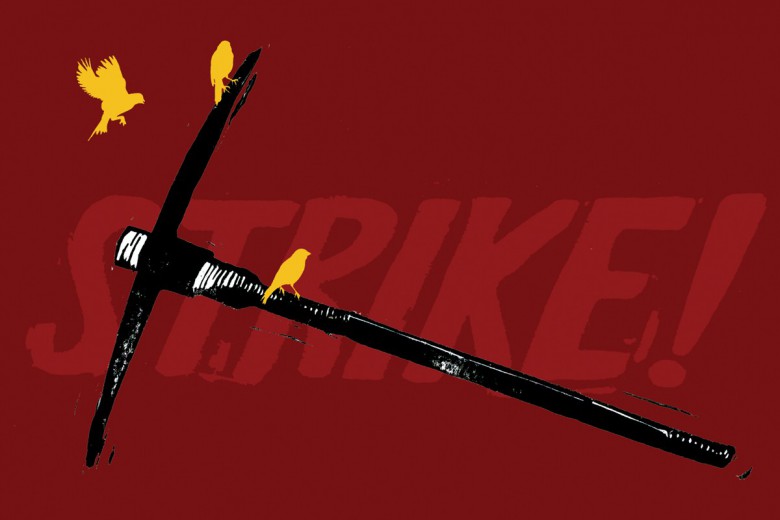
It’s an unremarkable Tuesday evening in mid-October and I’ve just entered a second-floor meeting room at the Northern District Library in downtown Toronto.
I’m feeling optimistic. I’ve driven in from Brantford to attend my first Professional Writers’ Association of Canada event, which is supposed to help me decide whether I’ve got what it takes to become a freelancer. I’m putting my money – all $10 of the entry fee – on Writers Association member, writer and lecturer Paul Lima and his “(Almost) Everything you wanted to know about Freelance Writing” workshop.
I take a seat beside a young, friendly looking woman with a blond pixie cut. I peg her as a student who, like me, is hoping to break into the world of freelance, but it turns out she’s just back from England where she interned for a bioenergy research publication. She is now pursuing a freelance public relations career while working for the CBC on the side.
A few rows in front of me are two older women. One seems shy and almost grandmotherly; the other sports a black leather hat and Pink Floyd T-shirt. Looks can be deceiving: grandma has been published in Bikers Monthly, while the Pink Floyd enthusiast writes human interest features for her community newspaper.
The room is filled with community newspaper reporters, occasional magazine contributors, corporate tech industry authors, a self-help ghostwriter and, as I find out later at the pub, a few first-timers hoping to leave behind careers in acting, home inspection and real estate for a taste of what the freelance world has to offer. However varied their interests, their aspirations are the same: get published, build a reputation and earn a living.
That doesn’t seem like too much to ask.
The problem, though, isn’t that freelancers are asking too much; it’s that they’re getting too little. Too little recognition, too few assignments and wages that don’t even come close to providing a decent living. The average freelancer in Canada today makes $24,000 a year.
Most accept the meagre wages in the name of pursuing a career in which they can take pride, all the while relying on part-time employment in other sectors or partners with full-time jobs and benefit packages to carry them through.
A few, though, take a more collective approach and look to the Canadian Freelance Union to get a better deal. Launched in 2006 by the Communications, Energy and Paperworkers Union of Canada, the Canada-wide local has signed just over 500 members to date, a mere fraction of this unregulated and unquantifiable workforce.
The perks
Toronto freelance writer Margaret Webb spent seven years in senior editorial positions at magazines such as T.O. Magazine, enRoute and Vista before venturing out on her own. Although she acknowledges full-time staff positions have their advantages, she also says that being her own boss allows her the freedom to organize her work in a way that best fits her lifestyle. “I probably work longer hours than I did at a full-time job, but I don’t have to commute to work,” she says. “I can work when I want, and if I want to take an hour off at lunch, I can. My time is used more efficiently; it’s not just face time.”
The freedom to set one’s own hours and avoid daily office commutes is an undeniable perk in every freelancer’s career. Other draws include the variety of assignments, the freedom to be creative and some significant tax breaks. According to Artbooks, a Toronto-based accounting firm that caters to artists and independent types, freelance journalists can write off large portions of expenses such as office rent (including insurance and utilities), car expenses, telephone and cable fees, and travel costs, all of which can help sweeten the deal. “If I were to go to work full-time, I’d make more money,” Webb says. “But the taxes make the difference. It’s a major advantage.”
The tax incentives and flexible working hours aren’t the only pluses. Freelance journalist Paul Gains has covered sporting events around the world since 1983. Although he’s occasionally wondered where his next paycheque would come from, he says the range of stories he covers and the chance to explore the world make it all worthwhile.
“I turn assignments into vacations,” he says. “I’m not wealthy by any stretch of the imagination, but I’ll sometimes tack on three or four days at my own expense at the end of a project. I’ve been to Japan six times, Morocco, and Libya, Lisbon, Rome, London – all over the place.”
For her part, Webb loves to write, but she also loves food and travel. By combining all three of her passions, she’s been able to land countless magazine articles in Toronto Life, Saturday Night, Chatelaine and several international travel magazines. Her latest project, a culinary travel book called Apples to Oysters, is a testament to what happens when a good idea and the enthusiasm to see it through come together.
“I just finished off this book, which allowed me to travel right across Canada, stay in places I would not normally stay in,” she says. “A shack in Alberta while I was rounding up cattle, a prospector’s tent in the bush at an organic veggie farm in the Yukon; I went fishing on a scallop and lobster boat… . I was able to work on a project I was passionate about, in a literary way, which allowed me to use my voice in a way I hadn’t before. It was a fabulous experience.”
For freelancers like Gains and Webb, it’s neither money nor security that drives them. It’s their passion for writing. Like many up-and-coming actors and scriptwriters to whom they’re frequently compared, freelancers are willing to make financial sacrifices and accept part-time employment in related markets to offset the often paltry living they squeeze out of their freelance pursuits.
Even well-established freelancers feel the push to look outside the industry for financial stability. Webb, for example, teaches a course in magazine writing at Ryerson University. She also supplements her freelance income by writing books. And if that’s not enough – and it isn’t – she relies on her partner’s benefits package to fill the gaps inherent in most freelance employment.
While the cost of living continues to rise, most freelancers are paid the same rate today as they were almost 40 years ago. “Most commercial magazines pay $1 per word, which is horrifying,” says Shelley Ambrose, executive director of the Walrus Foundation and co-publisher of The Walrus. “It’s been that way since 1970. It’s one of the only the jobs on earth that has not adjusted for inflation.”
Most publishers, especially those who work for newspapers, will claim they simply can’t afford to pay freelancers more. The industry’s operating margins have been squeezed to new lows recently, and someone somewhere has to take the hit. Because full-time staff writers tend to be unionized, unprotected freelancers make an easy target when times get tough.
Not only are freelancing rates outrageously low, but the contracts freelancers accept often give publishers the right to print and reprint a single article in as many newspapers and magazines as they please. Given the extent of Canadian media conglomeration today – just four of the 98 dailies in the country are independently owned – freelancers hoping to sell their work to more than one source are finding fewer and fewer doors to knock on.
Of course, contracts only become an issue after a writer has sold their story to an editor. For those new to the industry, the sale may be the hardest part. Many established freelancers say that getting editors to notice their work and give them a shot isn’t something that happens overnight. “Once you can wallpaper your bathroom in rejection letters,” says one veteran, “you’re ready to be published!”
Herding cats and other organizing tactics
While generating ideas, getting buy-in on stories and staying motivated are just a few of the challenges independent writers face, some have taken a more collective approach to dealing with the bigger obstacles of wages and copyrights by joining the union. But the numbers are telling. Canadian Freelance Union president Mike O’Reilly acknowledges that while forming a union to support the collective needs of freelancers is a great idea in theory, getting people to sign up hasn’t been easy. When the union was formed in early 2006, he anticipated a membership of 600 by the end of the year. To date, just over 500 have joined. A freelance writer himself, O’Reilly appreciates the hesitancy many independent writers have demonstrated so far. “Freelancers are busy people trying to make a living,” he says. “Most don’t have time for this kind of silly politics.” And then there’s the newness of it all. O’Reilly likens the process of organizing freelancers to the task of “herding cats.” “It’s never been done before because it’s a very hard thing to do.”
Something else that’s rarely been done is paying freelancers by the hour rather than by the word. But that’s something the union is hoping to change. O’Reilly disagrees with per-word payments for one simple reason: “A job that takes me four days to research and write could take someone else two hours.” In other words, no two freelancers work at the same pace and what might be a good rate for one freelancer, says O’Reilly, could be “utter junk” for another. “No other contract worker charges this way. It would be like plumbers charging per foot of pipe used. It’s a crazy way to think about running a business.”
Although wages and copyright problems have worsened in the last 10 years due to what O’Reilly calls a “through the roof” increase in media convergence, he says low wages for freelancers are a perennial problem. “Fundamentally, it comes down to a market issue. Publishers are big, freelancers are small; at the negotiation tables, publishers win. It’s a matter of balance and power, and unfortunately, the imbalance is just getting worse.”
The grim economics of freelancing, says O’Reilly, are making people realize that going it alone is not going to be a viable option for much longer. A 2007 freelance union newsletter states that in the past 30 years, freelance writers and journalists have seen their income drop 163 per cent. Based on actual income data collected in a 2006 Professional Writers Association of Canada survey, 61 per cent of freelancers now make under $25,000 per year. Forty per cent make less than $10,000. Just to have kept up with inflation, a freelancer’s annual income would have to be around $55,000 today. Instead, it averages less than half of that.
Nancy Sont, a former freelance travel writer who lives in the Ottawa region, says she gave up her freelance career after she filed her taxes one year and realized she had only made $8,000. Sont, one of the lucky ones not completely reliant on her freelancing as her sole source of income, viewed her assignments more as an opportunity to see the world and have a good time. She explains that her husband is a university professor who supported what many in the freelance realm refer to as their “dirty little secret.”
Today, Sont enjoys a slower pace. On summer days she can be found lying in her hammock, building teepees and listening to the stream that runs past her country home. The rest of the year she drives a school bus, a part-time job she took up because she “wondered what it would be like.” On the matter of joining a union for freelancers, something which may have helped Sont in her freelance pursuits, she’s skeptical. “I guess I would join,” says Sont, “but it probably wouldn’t work. Freelance writers, especially freelance travel writers, are very competitive and unfriendly to one another. Everyone wants something.”
On their own?
O’Reilly, on the other hand, believes that despite low union membership to date, the message of solidarity and support among freelancers is finally starting to gain traction. “Economics are driving people to realize that we need to join together,” he says. It’s either “float together or sink on your own.”
The union president is baffled by the fact that more and more schools have begun to offer journalism programs, given that there are fewer media jobs than ever before. He worries that students will be unprepared for what awaits them when they graduate. “The reality for most is that if they’re going to be working, they’re going to be freelancing.” As a result, O’Reilly believes, a union will make even more sense in the coming years.
So why have so many hesitated to sign up? Those who count themselves among the minority of freelancers making a decent living from their jobs may not see the value in it. In fact, some of the better-paid worry the $50-per-hour minimum rate the Canadian Freelance Union plans to set will force down their own rates should they agree to join.
Gains, for one, doesn’t quite understand how a union would work. “When I hear what some of these papers pay, $100 to $200 per story, if that’s going to be the norm, and I’m making three times as much, it doesn’t help.” But O’Reilly says setting a minimum hourly rate is intended to raise standards, not bring down individual rates. Freelancers who feel their work is worth more are still encouraged to negotiate a higher rate.
Setting the record straight on minimum rates and getting freelancers to work together haven’t been the freelance union’s only struggles. Making publishers listen and take action is another uphill battle. “Publishers continue to not give us the time of day,” O’Reilly says. “They won’t return calls, and won’t talk to us.”
He says independent freelancers have tried to argue for better treatment from many angles, including the ethical case and the need for Canadian creativity and content, but none of that seems to be working. “Doing the right thing doesn’t seem to be important” to publishers, he adds. What is important is the bottom line. “If they can squeeze harder, they will. Sadly the only way we can change their minds is to unionize, as labour has always unionized, by organizing and collectively saying no.”
But it’s that very word, collective, that seems to be the problem.
As the Professional Writers Association of Canada meeting wraps up and I head to the pub across the street with the Pink Floyd wallflower and Biker Grandma, I wonder how such a diverse group can even dream of working together toward a common goal. Driving home later with the city behind me, I can’t help but fear that freelancers, like the line of work they pursue, are truly in this on their own.






